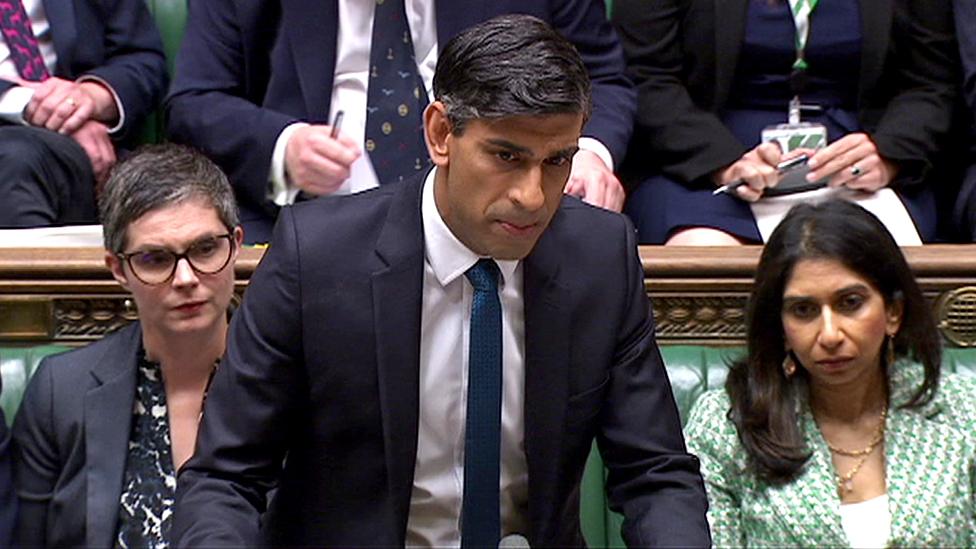Government U-turn on debate on gay military ban report
- Published
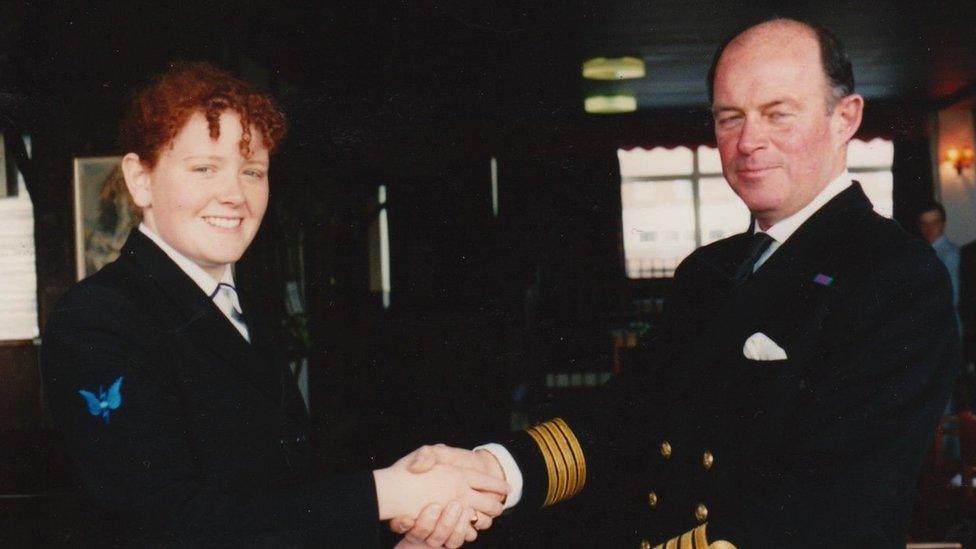
Emma Riley, during her passing-out ceremony, in 1990
The treatment of veterans thrown out of the military for being gay will be the subject of a full debate in Parliament, after a government U-turn.
LGBT people were banned from serving in the armed forces until the year 2000.
The debate, originally promised in July, after an independent report into the ban, was then scrapped but, BBC News has learned, will now be in 2024.
And veterans affected can now register their interest in applying for reparative schemes.
More than a thousand veterans gave testimony to the LGBT Veterans Independent Review, external, by the UK's first openly gay judge, Lord Etherton, including how they had been bullied, physically and sexually assaulted, thrown out of the military and often left without income or being able to claim their pensions.
And on Wednesday, Andrew Murrison MP confirmed the government had "accepted the intent" behind all the review's 49 recommendations for the government to make amends and already implemented half of them, including an official apology from Prime Minister Rishi Sunak on behalf of the British state.
The veterans' treatment "has long been a stain on the conscience of the nation", he said. And the government was now "throwing open the door" for them to apply for restorative justice, including the return of medals stripped away.
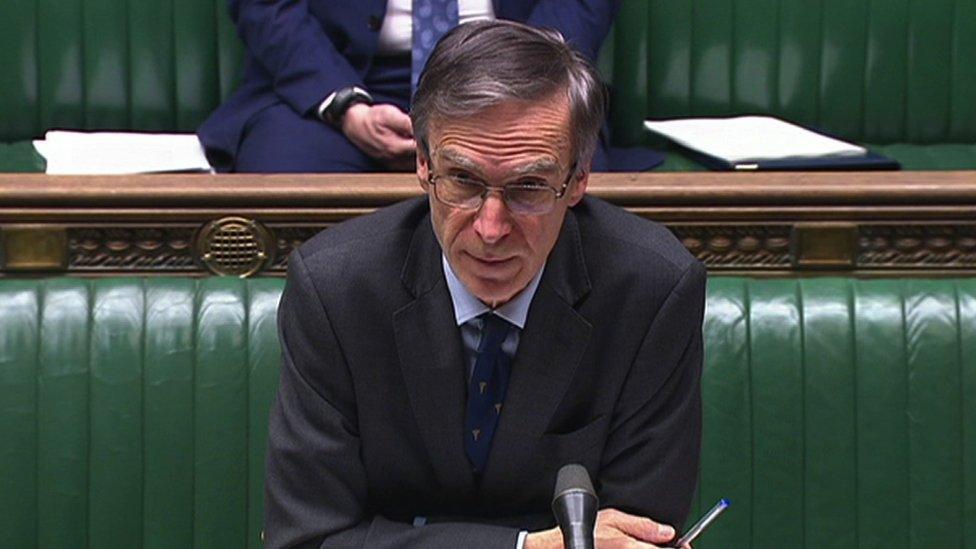
Andrew Murrison MP said the government "couldn't write a blank cheque" for compensation
Veterans can now apply online for some of the non-financial restorative measures, external.
Further details about financial compensation will be made available next year, external.
Veterans were warned the government would be unable to "write a blank cheque".
But earlier this week, military charities, including Help for Heroes and the Royal British Legion, signed an open letter to Mr Sunak, calling for the £50m cap on the total fund for veterans to be lifted as soon as possible.
On Wednesday, Royal British Legion interim director Antony Baines said: "We are pleased to hear the government accepts the recommendations of the review and has today taken steps to invite those affected by the ban to apply for restorative measures and indicate interest in the compensation scheme.
"We remain concerned that an arbitrary cap on the total amount that will be offered in compensation is unfair.
"Many of those who stepped up to serve our country were then subject to criminalisation, loss of earnings and pensions, and abuse. And we owe it to them to recognise the sacrifices they made and compensate them for the harms they endured."
'Regrettable chapter'
Defence Secretary Grant Shapps urged veterans to register online so the government could "continue to right the wrongs of the past".
"The way that LGBT personnel were treated between 1967 and 2000 was unacceptable," he said.
"Our response to Lord Etherton's review demonstrates the positive action we are taking to help rectify this regrettable chapter in the history of the armed forces."
Craig Jones, co-director of the charity Fighting with Pride, who campaigned for the review, welcomed the announcement of a full debate in Parliament.
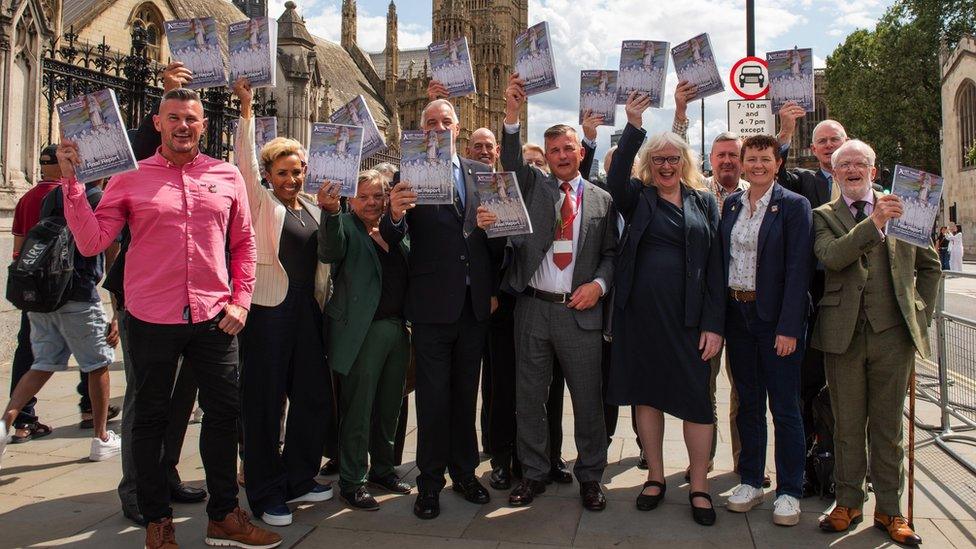
LGBT veterans from campaign group Fighting With Pride celebrated the report's publication, in July 2023
Olympic champion Dame Kelly Holmes, who served in the Army during the ban, told the review: "Veterans lost careers and livelihoods. Some were bullied, some tortured and lost everything including self-worth.
"Some now in their 60s and 70s and those who are suffering with lifelong mental-health problems have been hoping in their later years to rebuild their lives. The compensation is too low. It's horrific, a kick in the teeth.
"Unless the government does the right thing and scraps the compensation cap, it has a catastrophic problem on its hands."
Emma Riley, 51, a Royal Navy radio operator in the early 1990s, before her arrest and discharge for being a lesbian left her with "absolutely nothing", welcomed the apology and plans for a memorial and ribbon for LGBT veterans.
"The non-financial parts of this are incredibly important because things like a beret or a medal are physical reminders of the pride we had serving - and that pride was taken away from us and turned into shame," she said.
Related topics
- Published11 December 2023
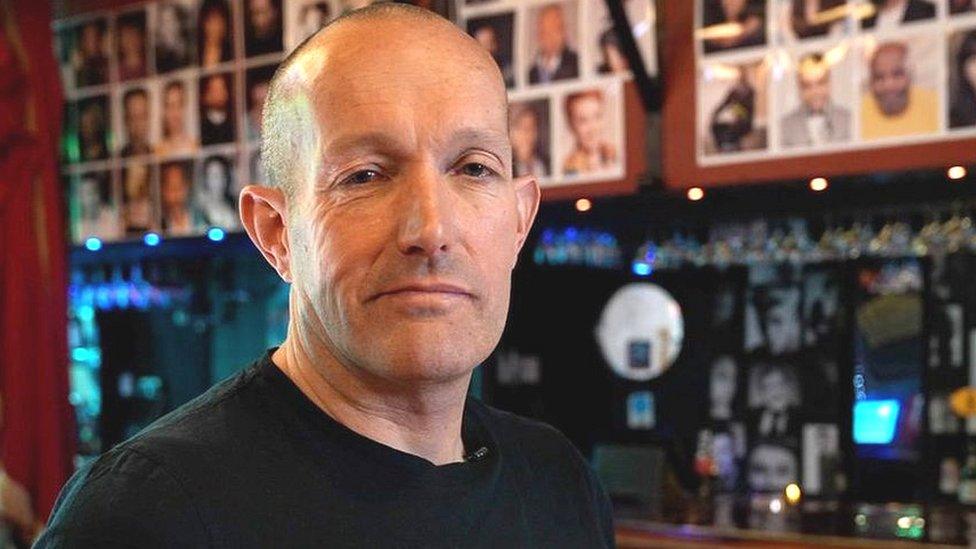
- Published19 July 2023
